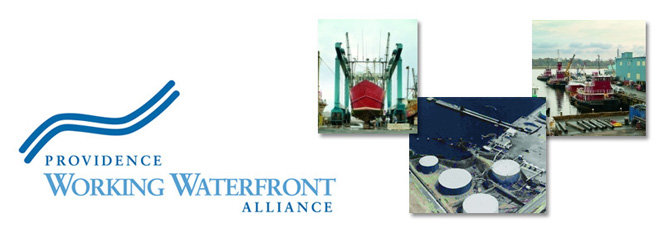In 2001, the U.S. Army Corps of Engineers produced a Purpose and Need report for the Providence Harbor channel dredging project. The report contains several striking paragraphs about Rhode Island’s precarious oil heat supply capacity. Since 2001, Rhode Island has lost even more storage capacity as oil tanks have been torn down in Providence and elsewhere. This shortage of storage capacity is making it difficult to even maintain the state’s emergency three-day home heating oil reserve.
An important justification for dredging the Providence River channel is the impact it would have on public safety. Both petroleum products and road-salt are vital commodities to the well being of the people of Rhode Island and the surrounding areas. A large number of people rely on a continuous flow of heating oil, gasoline, and diesel fuel into the Port of Providence. Therefore, failure to dredge the Providence Ship Channel places undue risk upon the health and safety of citizens for several reasons.
The ability of the current system to effectively deliver adequate quantities of fuel to Rhode Island under draft restrictions and using the current supply methods to meet present demand is precarious. During the winter of 1999-2000 the entire State of Rhode Island came within one day of running out of heating oil in February when weather conditions precluded barge delivery of petroleum. The arrival of a foreign flagged ship of heating oil averted what could have been a life-threatening crisis. The following winter, in December 2000, Rhode Island was down to less than a two-day supply even
though there was a tanker carrying much needed supplies at anchor in Rhode Island waters. However, barges were not available to lighter oil. This reserve was created based partly on the fact that rough weather conditions would
prevent barges from sailing when seas are over 4 ft high or barges might not be available when needed.
The need for #2 back-up fuel:
Petroleum (#2 fuel oil) is recognized by ISO New England (2001) prospectively as a back-up fuel for electrical generation. This adds another reason why the channel will need to accommodate fully loaded petroleum tankers. Electric generation plants in Rhode Island are interruptible gas customers. When natural gas is unavailable, they can switch to #2 fuel oil for a period of three days in order to continue to produce electricity.
The need for road salt:
The other commodity that is brought into the Port of Providence, which directly impacts public safety, is road-salt. Road-salt is a necessary commodity during the winter months. Presently, this commodity comes into this market through two terminals in Providence.

